APR. 6 - 8, 2024
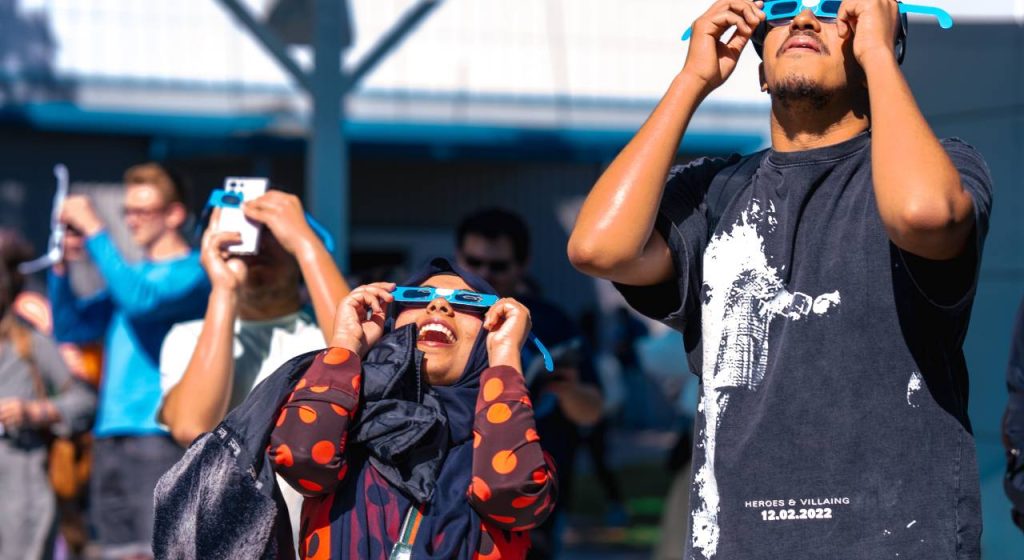
Access to the event is included in general admission to Space Center Houston for these three days.
Make Space Center Houston your eclipse viewing destination! Learn about the science of solar eclipses with three days of interactive programming—all included in general admission.
On April 8, 2024, a total solar eclipse will cross North America, passing over Mexico, the United States, and Canada. This will be the last total solar eclipse visible from the contiguous United States until 2044. On April 8, all guests will receive a complimentary pair of eclipse glasses!
While the path of the 2024 total solar eclipse cuts 480 miles through numerous Texas towns and cities, Houston will only experience a partial solar eclipse.
But where else would you watch a Texas eclipse–other than Space Center Houston, the Official Visitor Center of NASA Johnson Space Center!
Tap the map to view the full image.
See what we’ve got lined up to celebrate this rare cosmic occurrence.

On April 8, KHOU 11 anchors Len Cannon, Mia Gradney and Chief Meteorologist David Paul will host live coverage of the eclipse from Space Center Houston. Watch it on KHOU 11 and stream on KHOU 11+ starting at noon.
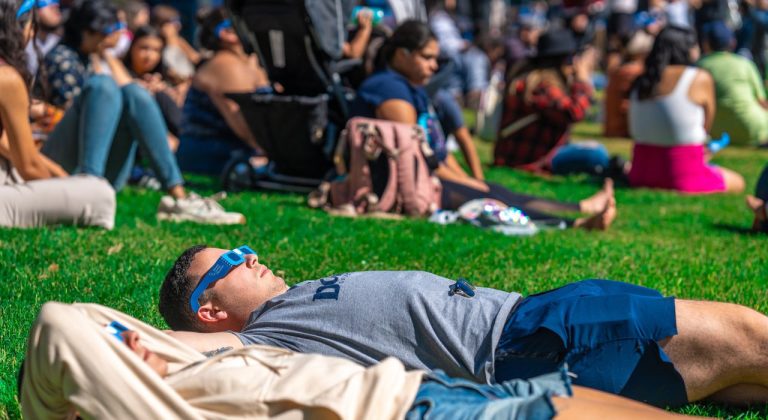
On April 8, all visitors will receive a pair of commemorative eclipse glasses to safely view the eclipses.
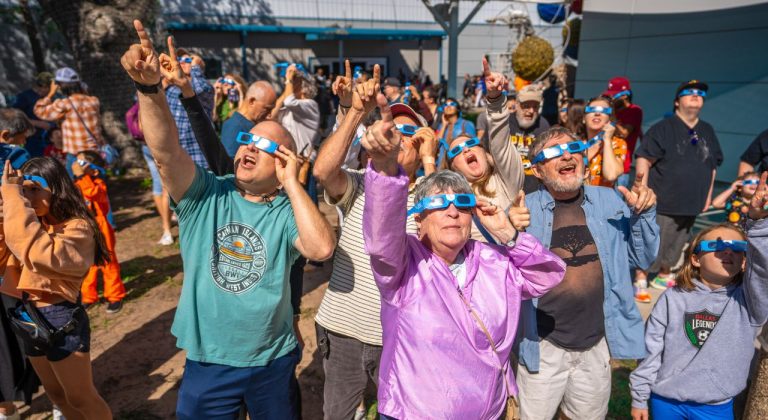
On April 8, the Houston Astronomical Society will be hosting fun, hands-on activities that bring explorers of all ages closer to the cosmos.

Starting on April 6, visitors can watch as iconic Houston artist GONZO247 creates a mural inspired by the phases of the eclipse. Visit each day of the celebration to watch this brand new artwork unfold!
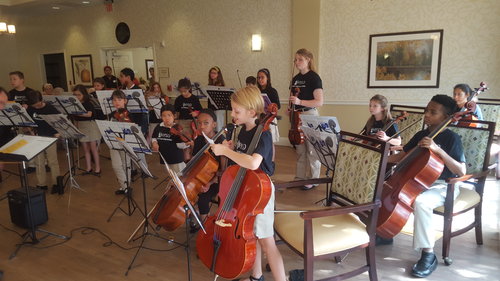
On April 6, enjoy a chamber music performance inspired by the stars in Space Center Theater.
Only on April 6
12 p.m. | Space Center Theater | Houston Youth Chamber Orchestra perform music inspired by the cosmos
2:15 p.m. | Destiny Theater | Special Presentation “How did the 1919 Eclipse help prove General Relativity?,” Dr. Yuri Bonder
3:30 p.m. | Destiny Theater | Presentación especial “¿Cómo ayudo el eclipse de 1919 a probar la relatividad general?,” Dr. Yuri Bonder
All Day
Interactive Community Mural by GONZO247 inspired by the phases of the eclipse
New presentations and hands-on labs about eclipses
Pop-up planetarium presentation
Eclipse merch for sale at Space Trader
Sun spotter telescopes for guests
All Day
Interactive Community Mural by GONZO247 inspired by the phases of the eclipse
New presentations and hands-on labs about eclipses
Pop-up planetarium presentation
Eclipse merch for sale at Space Trader
Sun spotter telescopes for guests
Only on April 8
Eclipse glasses giveaway
Eclipse and space expert lightning talks in Independence Plaza with emcee retired NASA astronaut Tony Antonelli
Make your own solar system bracelets with the University of Houston Clear Lake
Inflatable eclipse-themed maze for young explorers
Reserved members-only viewing area
Hands-on activities with the Houston Astronomical Society
Eclipse-themed snacks available in Independence Plaza
All Day
Interactive Community Mural by GONZO247 inspired by the phases of the eclipse
New presentations and hands-on labs about eclipses
Pop-up planetarium presentation
Eclipse merch for sale at Space Trader
Sun spotter telescopes for guests
Even more perks to enjoy all year as a member:
A total solar eclipse happens when the Moon passes between the Sun and Earth, completely blocking the face of the Sun. People viewing the eclipse from locations where the Moon’s shadow completely covers the Sun – known as the path of totality – will experience a total solar eclipse.
The sky will become dark, as if it were dawn or dusk. Weather permitting, people along the path of totality will see the Sun’s corona, or outer atmosphere, which is usually obscured by the bright face of the Sun.
A total solar eclipse is the only type of solar eclipse where viewers can momentarily remove their eclipse glasses (which are not the same as regular sunglasses). It is only safe to remove your eclipse glasses during what’s known as totality, the brief period of time when the Moon is completely blocking the Sun.
What you can see during a total solar eclipse depends on the weather and the location from which you view it.
Source: NASA

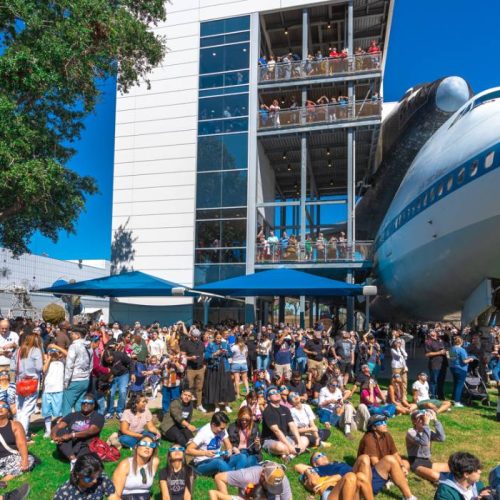
HOURS TODAY
Explore the future at Moon 2 Mars Festival, presented by Wellby Financial from March 11-14. Tickets on sale now!
Friday, February 6 | 7:30 p.m.
Witness history at the Official Visitor Center of NASA Johnson Space Center.